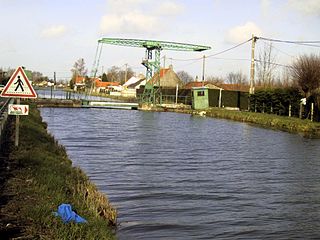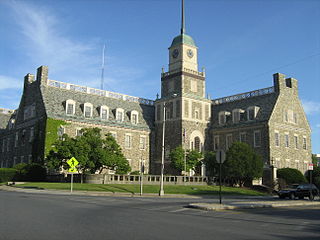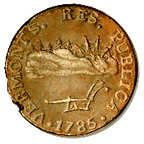Events
| | This section needs expansion. You can help by adding to it. (October 2015) |
Events from the year 1785 in the Dutch Republic
| | This section needs expansion. You can help by adding to it. (October 2015) |
| | This section needs expansion. You can help by adding to it. (October 2015) |
| | This section needs expansion. You can help by adding to it. (October 2015) |

Richard Henry Lee was an American statesman and Founding Father from Virginia, best known for the June 1776 Lee Resolution, the motion in the Second Continental Congress calling for the colonies' independence from Great Britain leading to the United States Declaration of Independence, which he signed. Lee also served a one-year term as the president of the Continental Congress, proposed and was a signatory to the Continental Association, signed the Articles of Confederation, and was a United States Senator from Virginia from 1789 to 1792, serving part of that time as the second president pro tempore of the upper house.

The Inland Revenue was, until April 2005, a department of the British Government responsible for the collection of direct taxation, including income tax, national insurance contributions, capital gains tax, inheritance tax, corporation tax, petroleum revenue tax and stamp duty. More recently, the Inland Revenue also administered the Tax Credits schemes, whereby monies, such as Working Tax Credit (WTC) and Child Tax Credit (CTC), are paid by the Government into a recipient's bank account or as part of their wages. The Inland Revenue was also responsible for the payment of child benefit.

Guînes is a commune in the northern French department of Pas-de-Calais. Historically it was spelt Guisnes.

Events from the year 1785 in Canada.

The Land Ordinance of 1785 was adopted by the United States Congress of the Confederation on May 20, 1785. It set up a standardized system whereby settlers could purchase title to farmland in the undeveloped west. Congress at the time did not have the power to raise revenue by direct taxation, so land sales provided an important revenue stream. The Ordinance set up a survey system that eventually covered over three-quarters of the area of the continental United States.

The Legislative Assembly of New Brunswick is the deliberative assembly of the New Brunswick Legislature, in the province of New Brunswick, Canada. The assembly's seat is located in Fredericton. It was established in Saint John de jure when the colony was created in 1784 but came into session only in 1786, following the first elections in late 1785. The legislative assembly was originally the lower house in a bicameral legislature. Its upper house counterpart, the Legislative Council of New Brunswick, was abolished in 1891. Its members are called "Members of the Legislative Assembly", commonly referred to as "MLAs".

Louis Joseph Xavier François was Dauphin of France as the second child and first son of King Louis XVI and Marie Antoinette. As son of a king of France, he was a fils de France. Louis Joseph died aged seven from tuberculosis and was succeeded as Dauphin by his four-year-old brother Louis Charles.

The Poughkeepsie Journal is a newspaper based in Poughkeepsie, New York, and owned by Gannett, which bought the paper in 1977. Founded in 1785, the Journal is the oldest paper in New York state, and is the second-oldest in the nation. The Journal's primary coverage area is Dutchess County, though the entire Mid-Hudson Valley is covered in some form, along with some coverage of points south via the White Plains–based Journal News.
The 100th Regiment of Foot, or the Loyal Lincolnshire Regiment, was an infantry regiment of the British Army, formed in 1780 and disbanded in 1785. The Loyal Lincolnshire Regiment was reformed in 1794 as the 123rd Regiment of Foot and was again disbanded in 1796.

The Mount Vernon Conference was a meeting of delegates from Virginia and Maryland held March 21–28, 1785, to discuss navigational rights in the states' common waterways. On March 28, 1785, the group drew up a thirteen-point proposal to govern the rights of both states on the Potomac River, Pocomoke River, and Chesapeake Bay. Known as the Mount Vernon Compact and formally titled as the Compact of 1785, this agreement not only covered tidewater navigation but also extended to issues such as toll duties, commerce regulations, fishing rights, and debt collection. Ratified by the legislature of both states, the compact helped set a precedent for later meetings between states for discussions into areas of mutual concern.
Events from the year 1721 in Ireland.

Vermont coppers were copper coins issued by the Vermont Republic. The coins were first struck in 1785 and continued to be minted until Vermont's admission to the United States in 1791 as the State of Vermont.
Events from the year 1785 in the United States.
Wharton v. Wise, 153 U.S. 155 (1894), is a 9-to-0 ruling by the Supreme Court of the United States, which denied a citizen of the state of Maryland a writ of habeas corpus. The appellant, tried and convicted of illegally harvesting oysters from Pocomoke Sound in the Chesapeake Bay, had argued that his right to fish was protected by an interstate compact and that this compact also barred the state of Virginia from trying him. The Supreme Court disagreed on both counts.
Events from the year 1785 in Denmark.

Chhatarpur was one of the princely states of India during the period of the British Raj. The state was founded in 1785 and its capital was located in Chhatarpur, Madhya Pradesh.
Gabriel IV served as Ecumenical Patriarch of Constantinople during the period 1780–1785.
Events from the year 1785 in Russia
![]() Media related to 1785 in the Netherlands at Wikimedia Commons
Media related to 1785 in the Netherlands at Wikimedia Commons